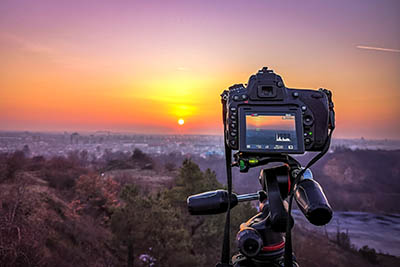
A good contract represents the backbone of a healthy photographer/client relationship, which is why you should be aware of everything it should include before you jump into the freelance photography industry.
Naturally, the contract should clearly state the obligations of both parties. However, this piece of paper represents so much more than that. Without further ado, let’s see what you should know about photography contracts.
Basic contract definition
To put it simply, a photography contract is a legally binding document between two parties — in this case, between you and your client. The client isn’t necessarily one person; it can be a couple, a group of people, a family, a business, etc. Put bluntly — your client is whoever is paying for your services.
If you’re just starting and are unsure what a contract should look like, you should opt for a free photography contract template. This will make things much easier and lead you in the right direction.
Why are photography contracts important?
A photography contract is necessary, as it clearly states what your clients want and expect from you. Plus, when you’re performing a service, you should be backed by proper legal documentation in case of unpredictable occurrences. Basically, if something does not go as planned, you will have a document that clearly states your next move.
Similarly, a photography contract serves as a relationship-building tool. Thanks to it, you will have clear communication with your clients. Both parties will be aware of all the expectations, which will make fulfilling promises much easier. Having a contract also makes your business more valuable, especially if you’re just starting. Clients will know they can build a relationship with you based on trust.
What to include
If you want to take matters into your own hands and create a photography contract that will suit your needs as a freelance photographer, you need to know a couple of basic things that should be included.
Take a look at what every photography contract needs to have:
- Contact details — Write down your client’s and your own basic information (name, address, phone number, email, etc.).
- Time and date of services — Include the precise date and time of your service to avoid confusion. Make sure not to leave out the location either.
- Payment details — Put down what you have already discussed with the client regarding payment, as this is something you should always have in writing. Include the total price, any deposits made, retainers, or a payment schedule. Don’t forget to state late fees if there are any.
- Extra costs — Aside from the payment details, make sure to include any additional charges (travel expenses, permits, second photographer, etc.).
- Editing and post-production — You probably have an editing style that suits you, so you might need to disclose it with your clients. If necessary, stipulate the additional cost for extra working hours.
- Image rights — Talk with your client about image rights and whether you want to transfer them after the shoot is over. This will allow your clients to use the photos on their own and post them online. Naturally, this is all up to you.
- Liability release — This part is important, as it protects you from unpredictable circumstances, like a camera malfunction, lost material, etc. Including such things in your contract might save you from paying back the full deposit amount.
- Cancelation provision — Since unpredictable things happen all the time, you need to clarify what the next steps are should either party cancel. Add what kind of time notice is acceptable, whether it entails a fee, and similar. Also, state what happens if you cancel your services.
- Dispute resolution — You should be prepared in case a disagreement arises between your client and you. Write down how you’ll handle it — for instance, whether you’ll need to hire a third party to resolve the dispute or get a mediator of some kind. After all, it’s always better to be safe than sorry.










